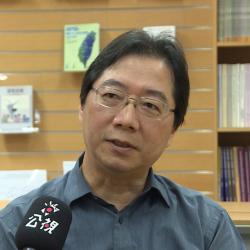2016
The 2016 presidential and legislative elections brought a new political landscape in Taiwan and upheld Taiwan’s robust political dynamics as a new democracy. The elections also shifted Taiwan’s political party system. The opposition Democratic Progressive Party (DPP) now controls the executive and enjoys a comfortable majority in the Legislative Yuan for the first time. By contrast, the once-dominant Kuomintang (the Nationalist Party, or KMT) is experiencing a process of re-structuring after its electoral defeat. And, the role of the newly emerged New Power Party (NPP) has attracted broad attention and seeks to hold the DPP accountable from the left. With the NPP as an increasingly powerful third party force, how will the dynamics shift between the two major DPP and KMT parties?
On December 15, Ching-hsin Yu, visiting fellow in the Center for East Asia Policy Studies at Brookings, presented a research paper on the 2016 campaign dynamics and its impact on the development of the party system in Taiwan. Using recent survey results, Yu discussed how the 2016 elections have altered academics’ understanding of Taiwan’s nascent democracy and political transition. Richard Bush, director of the Center for East Asia Policy Studies, provided remarks and moderated a discussion. At the end of the program, both speakers took audience questions.
Related Content
2016
Brookings Institution, Washington DC
Monday, 2:30 pm - 4:00 pm EDT
2016
Brookings Institution, Washington DC
Wednesday, 9:00 am - 12:15 pm EDT
Agenda
-
December 15
-
Featured Speaker
 Ching-hsin Yu Director and Distinguished Research Fellow, Election Study Center - National Chengchi University
Ching-hsin Yu Director and Distinguished Research Fellow, Election Study Center - National Chengchi University -
Discussant
 Richard C. Bush Nonresident Senior Fellow - Foreign Policy, Center for Asia Policy Studies, John L. Thornton China Center
Richard C. Bush Nonresident Senior Fellow - Foreign Policy, Center for Asia Policy Studies, John L. Thornton China Center
-


